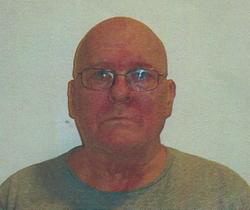AUGUSTA — A killer and rapist who was committed to the state psychiatric hospital 46 years ago wants to be released so he can live out his remaining years in Florida.
But state mental health officials testified Friday that he could present a risk to society because he still suffers from symptoms of the personality disorder he had when he killed a woman in Portland in 1969.
Donald Beauchene, 73, petitioned Kennebec County Superior Court seeking to be discharged from the Riverview Psychiatric Center and from the custody of the state’s health and human services commissioner.
He was found not guilty because of mental disease or defect in the killing of Bernadine Israelson and was committed to the state mental health hospital.
He escaped from the Augusta Mental Health Institute twice over the years, including in 1978, when he made his way to New York, where he was arrested and convicted of rape and sodomy. He spent 15 years in prison before being returned to the Maine state mental hospital in 1998, where he has been since.
His petition for discharge says he does not meet the requirements to be held at Riverview. Under questioning from his attorney, Harold Hainke, Riverview officials testified Beauchene has, at least recently, responded well to therapy. He follows the institution’s rules impeccably, welcomes new patients and makes them feel at home, better controls his anger and frustration about not being able to leave the facility, and didn’t respond with aggression when he was physically attacked by another patient, they said.
“I have noticed some progress in the time I’ve seen him,” said Dr. T.G. Sriram, a Riverview psychiatrist. “The anger and frustration he’s expressed has toned down significantly. I was able to see the softer side of him, and see all the good work he has put in. I know he does feel some remorse. But his self-pride prevents him from talking openly about his offenses. Privately, I believe he does feel remorse. He tells me when he’s alone in his room, he cries.”
Sriram also said Beauchene knows he “doesn’t have many active years left” and has said he does not want to die at Riverview.
But neither Sriram nor other mental health professionals who testified Friday said they believe Beauchene should be released.
Dr. Ann LeBlanc, director of the State Forensic Service, which evaluates the mental health status of people committed to the state, said Beauchene presents a risk because he still shows symptoms of a personality disorder that was called “explosive personality disorder” at his trial in 1970. The term is no longer used in the field.
LeBlanc said Beauchene has not shown remorse, is intelligent and has a great ability to find women who are less functional than he and use them, and is very good at telling Riverview staff what they want to hear to get what he wants. She said if he found a woman who would help him escape and get to Florida, where he has said he wants to live, he might try to escape from custody once again.
“It is possible he could change,” LeBlanc said. “I’d say, however, that Mr. Beauchene is adept at looking like he has changed, when he hasn’t. There is data that suggests he could change. But there is history that says it is unlikely.”
Justice Robert Mullen did not rule on the petition Friday, and said attorneys for both sides have until Oct. 3 to file briefs.
Sriram said his diagnosis of Beauchene is that he has an unspecified personality disorder, with anti-social and narcissistic features.
Beauchene said little during Friday’s court proceeding.
The petition also asks, if Beauchene isn’t discharged, that his treatment plan be modified to allow him more privileges, including a limited amount of unsupervised time in the community.
Sriram said initially the increase in time outside the facility would just be to walk outside Riverview to smoke cigarettes, or be given rides to and from the LINC – or Living in the Community – Club to socialize with peers for up to three hours at a time, with a requirement he check in with Riverview every hour, by landline phone or possibly Skype.
The LINC Club is about 2 miles away from Riverview in Augusta.
Debra Baeder, chief forensic psychologist for the State Forensic Service, said any increase in privileges for Beauchene should be done gradually. If he genuinely engages with therapists and shows improvement, further privileges could be added to his treatment plan.
She said one reason going slowly is important is while Beauchene has interacted positively with Sriram, in the past he has declined to engage in individual therapy with some other psychiatrists.
And Sriram is leaving Riverview, which has had problems retaining mental health professionals previously, at the end of October.
“Psychiatrists come and go at Riverview, unfortunately,” Baeder said. “And I think those recommendations would be helpful to whatever clinician follows Dr. Sriram. From my perspective, a long, demonstrated, robust compliance with smaller privileges in the community is the only way a court can have confidence (Beauchene) can progress through this process safely. This is the very first step in that.”
Send questions/comments to the editors.



